A new exhibition at Tai Kwun revisits the glory days of the undercover cop thriller — a subgenre that the show’s curators say originated in Hong Kong. Amy Mullins reports.
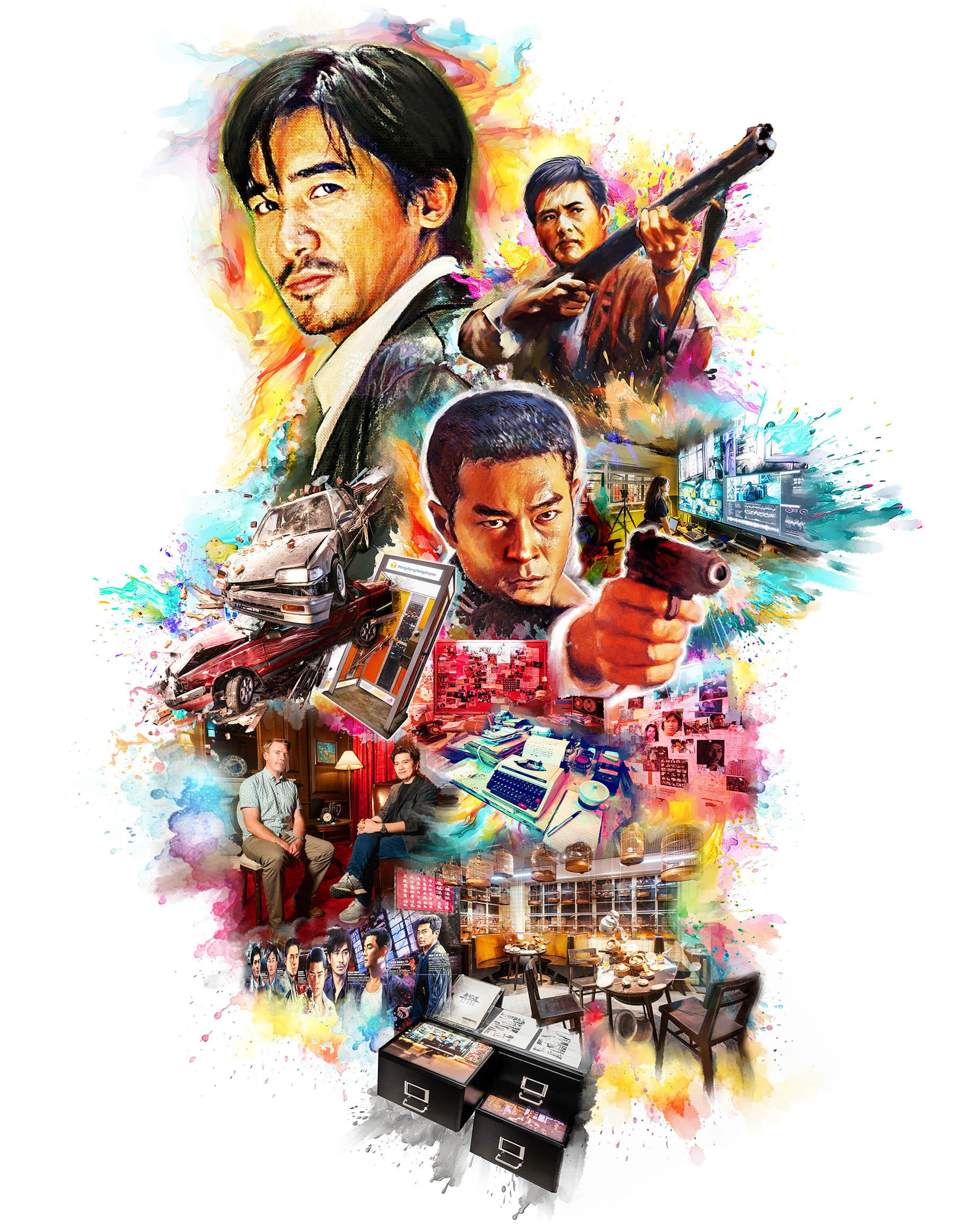
If one were to ask any self-respecting film buff to describe the most memorable moments from Hong Kong film history, Chow Yun-fat lighting a cigarette with a flaming $100 bill in A Better Tomorrow (1986), and Chow fending off gangsters with a baby in his arms in Hard Boiled (1992) would be the obvious choices. Andy Lau Tak-wah and Tony Leung Chiu-wai’s tense rooftop face-off in Infernal Affairs (2002), and the tete-a-tete about caviar between Lau and Daniel Wu Neh-tsu in Protégé (2007) are likely candidates as well.
These among other indelible movie moments, many of which made stars of the actors performing in them, are once more under focus at the Undercover Underworld exhibition in Tai Kwun. The former Central Police Station Compound turned cultural destination has a tradition of hosting Hong Kong popular-culture-themed exhibitions during summer. Previous editions celebrated the city’s neon sign heritage and Cantopop. Undercover Underworld is Tai Kwun’s homage to a unique Hong Kong subgenre of films that follow an undercover cop (UC) into the criminal underworld.
READ MORE: HK cinema is back
Tai Kwun invited director and playwright Sunny Chan Wing-san (Table for Six) to come up with a summer exhibition concept that acknowledged the site’s unique space and ideally led to a show related to it. Chan chose the undercover agent.
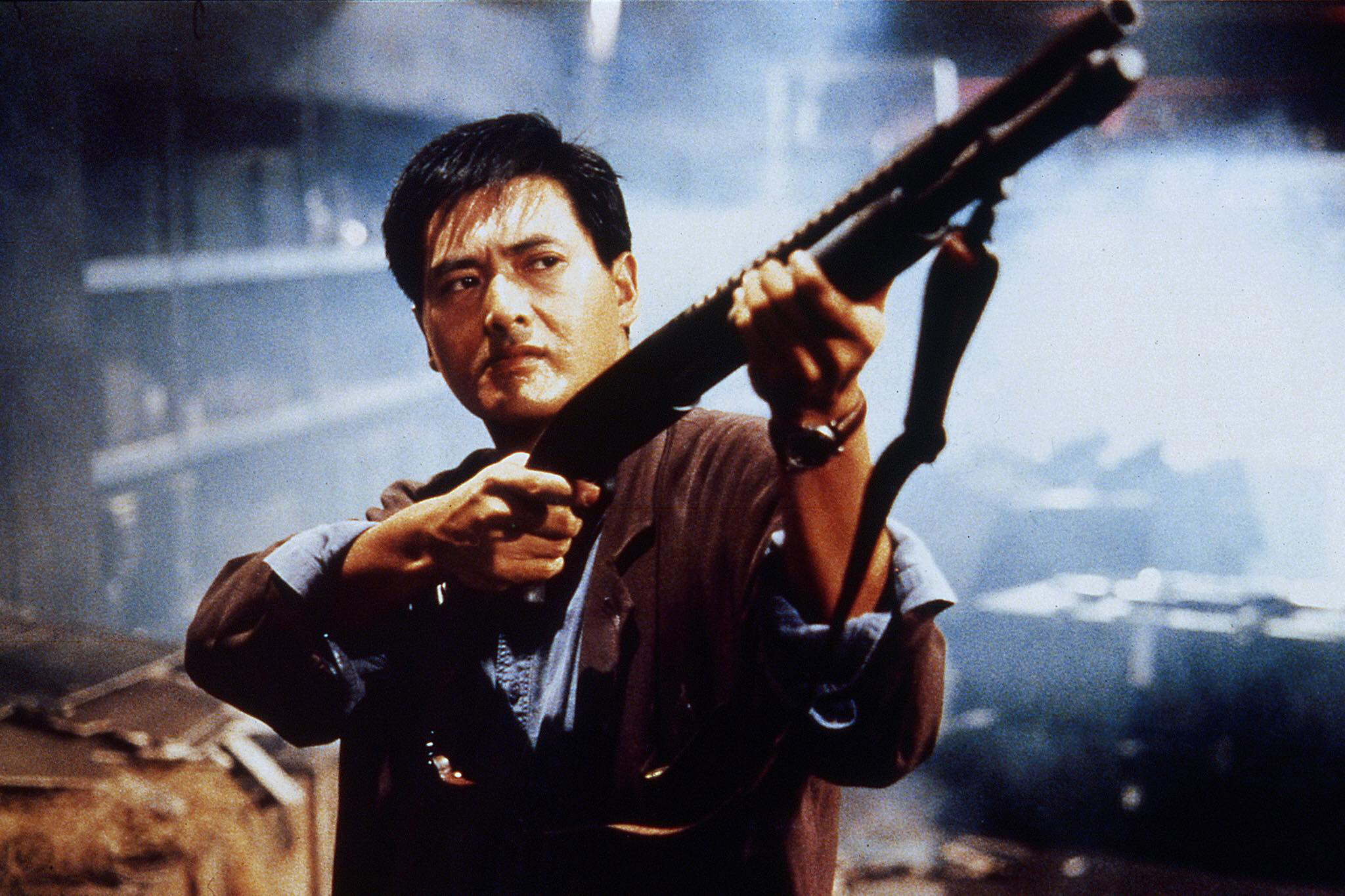
“If you look around the world, including Hollywood, no one makes as many undercover operations-based movies as Hong Kong did,” he says.
Chan zeroed in on eight classic movies widely recognized in Hong Kong to tell the story of the city’s undercover-cop thriller heritage.
Undercover Underworld is co-curated by Chan and Chinese University of Hong Kong academic Kristof Van den Troost. It traces the theme of covert police operations on screen via films spanning more than three decades, from the days of Hong Kong New Wave — Man on the Brink (1981) — to the recent past — The White Storm (2013). The exhibition highlights the consistent contribution of the UC to the city’s cinematic identity, the subgenre’s emergence as an international influence, and also the way these films reflected the city’s changing social realities.
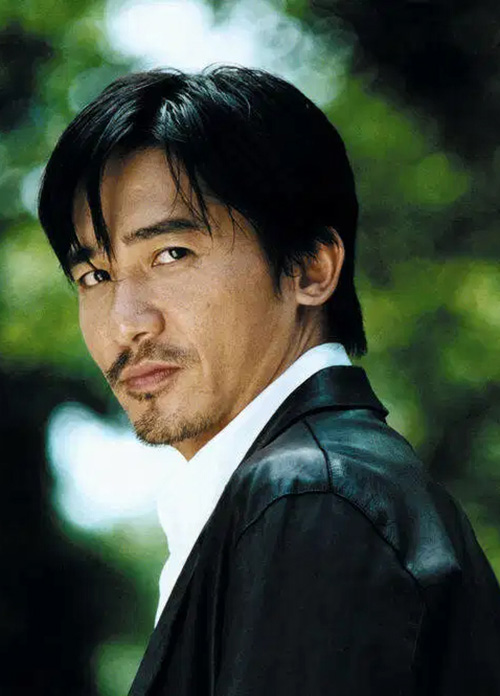
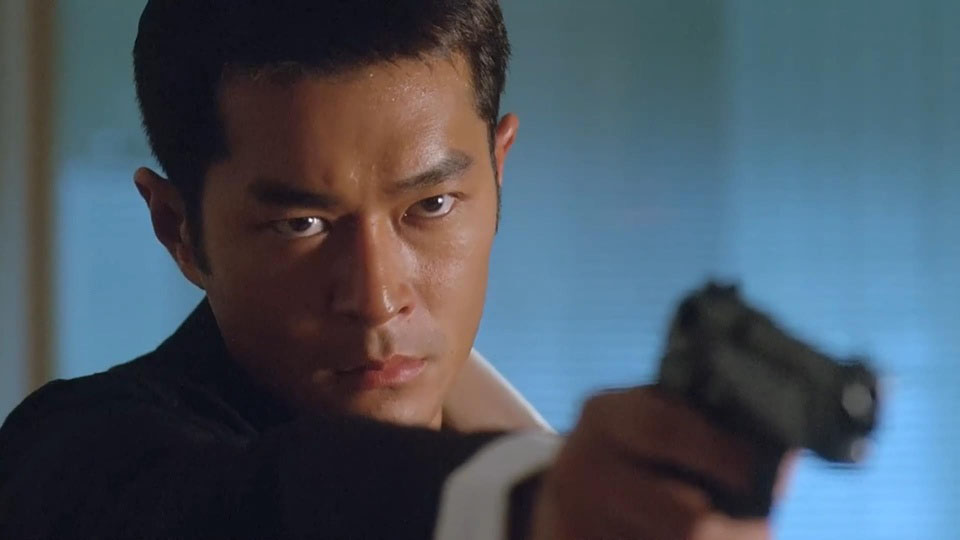
The earliest films had a gritty veracity that mirrored the Wild West vibe of the growing fishing village — Alex Cheung Kwok-ming’s Man on the Brink; City on Fire (1987) by Ringo Lam Ling-tung; and John Woo Yu-sen’s A Better Tomorrow II (1987), for example. In the ’90s, films such as Woo’s Hard Boiled and Century of the Dragon (1999) by Clarence Fok Yiu-leung reflected Hong Kong’s emergence as a frenetic tourism, financial and cultural powerhouse that left an impression on the South Korean, Thai, Indian and Hollywood filmmakers we watch today. By the 2000s, Hong Kong and its cinema were gleaming global players known for chic sophistication. Examples include Andrew Lau Wai-keung and Alan Mak Siu-fai’s Infernal Affairs, Protégé by Derek Yee Tung-sing, and Benny Chan Muk-sing’s The White Storm.
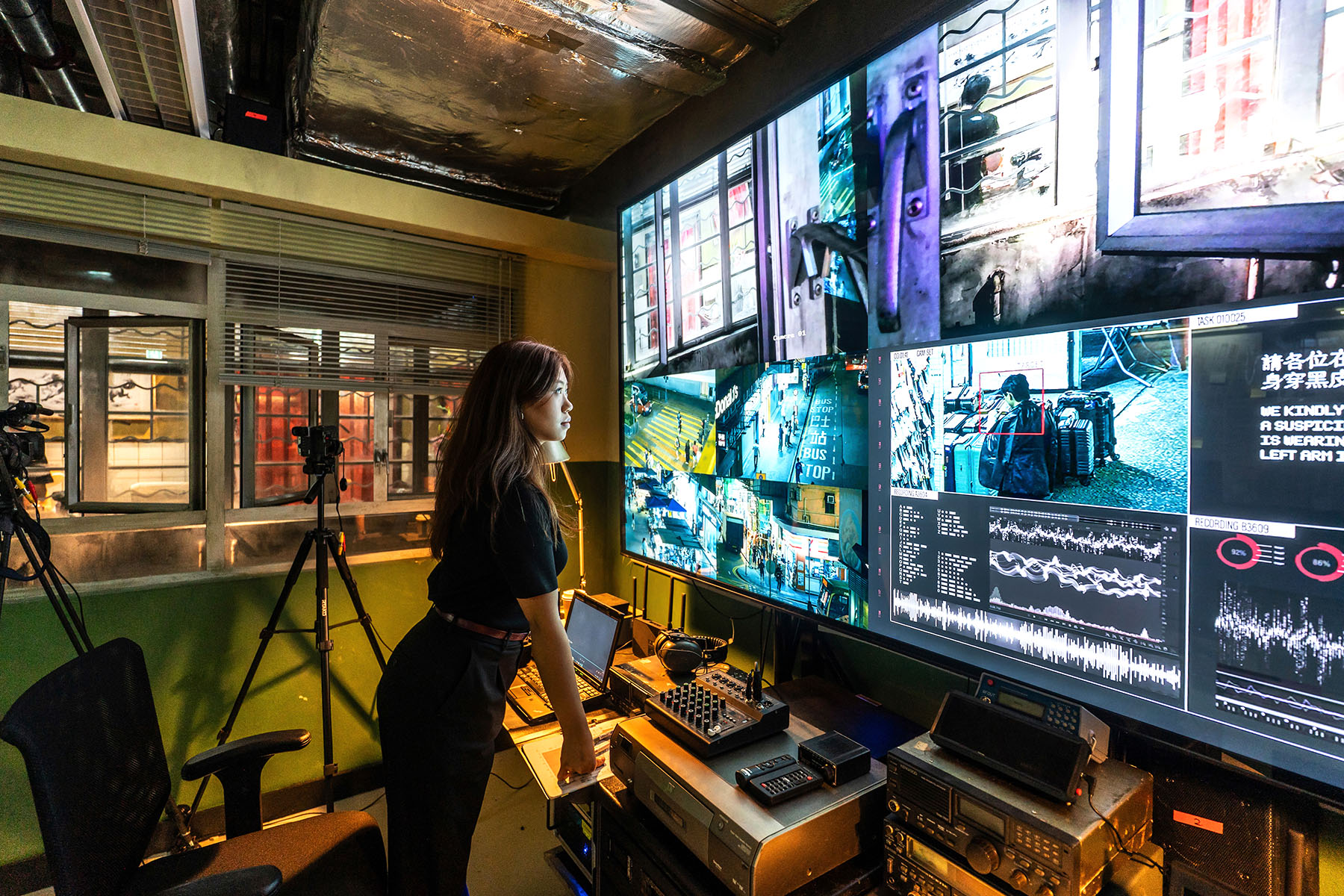
A Hong Kong invention
First and foremost, however, Undercover Underworld is about the intersection of fantasy and reality. The vibrant New Wave period, which lasted from the late ’70s to the mid-’80s, included comedy, horror, hopping vampires, social drama and kung fu — buoyed by Jackie Chan’s rising stature as an international icon. But it was the crime thriller, and within that the UC drama, that made the biggest waves.
Local filmmakers’ willingness to depart from the Hollywood tradition is what sets Hong Kong cinema apart. “And it is not just about the choreography of the action and how it was shot, but also about how Hong Kong cinema was breaking all limits and unspoken rules,” Van den Troost says.
“We had two goals. One was to look at this tradition of the undercover cop but also to celebrate the achievements of Hong Kong in making action films, which is something that made the city stand out internationally. You look at Hong Kong films from the ’80s and ’90s and compare them to Hollywood films of the time, and it’s just so much better.”
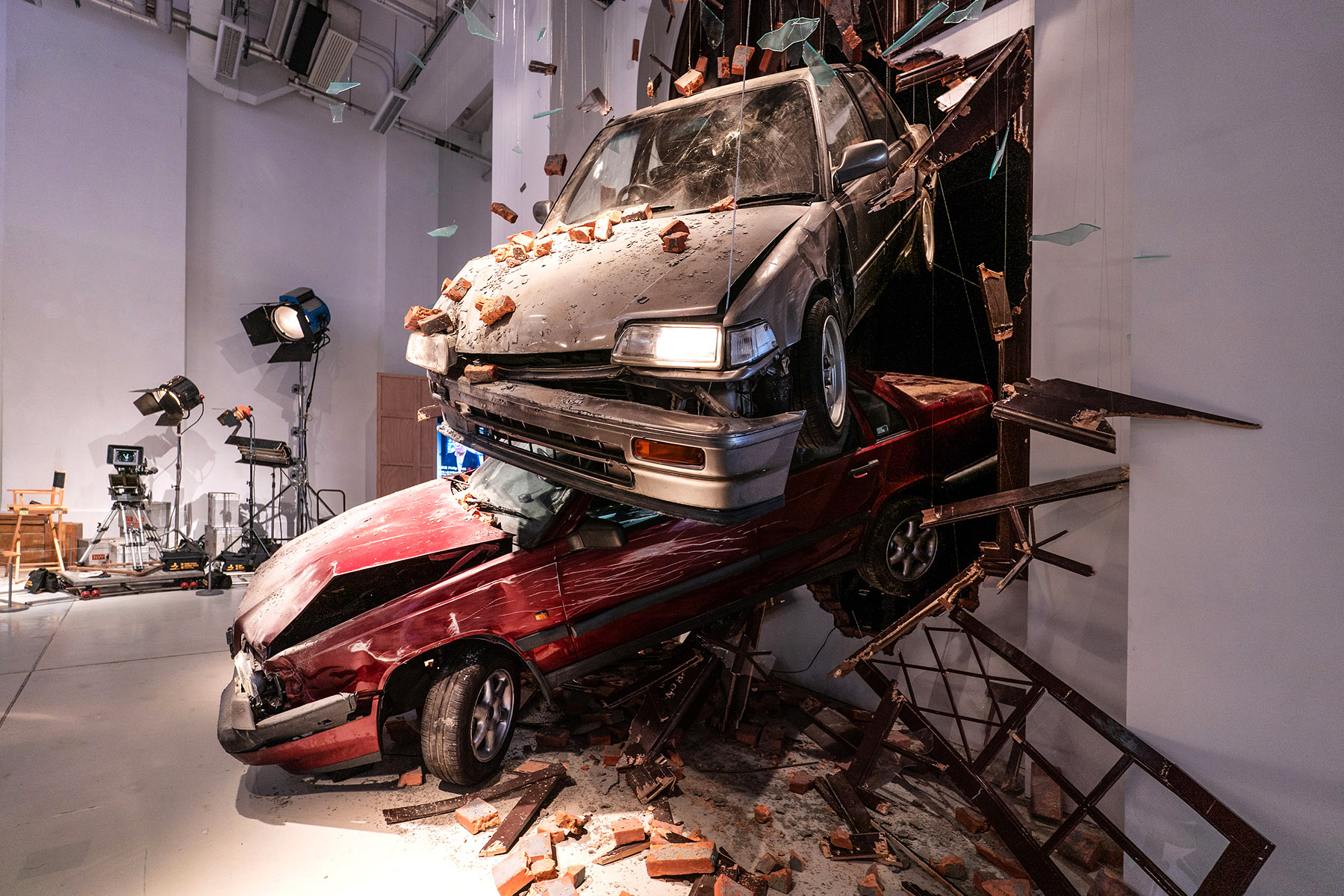
It could be argued — and indeed, Sunny Chan and Van den Troost do — that Man on the Brink kicked off the undercover subgenre. The film stars Eddie Chan as Chui, a rookie anxious to get into so-called real police work. His superiors think Chui is the perfect choice to infiltrate a triad as an undercover agent, as he doesn’t have social connections and is just reckless enough to fit into a gang. Eventually, the job takes a toll on Chui’s tenuous sense of morality, and his life in the real world starts to unravel. A gritty aesthetic and a documentary tone turn the film into a psychological study of identity, and is a far cry from the more-gonzo stylistic flourishes the UC thriller would demonstrate in the late ’80s, before turning into a slick, sophisticated cultural touchstone in the ’90s.
“Man on the Brink is the first Hong Kong movie to use an undercover agent as the film’s protagonist,” Sunny Chan says. “It was at the start of the New Wave, and we didn’t really have box-office pressures, so the way filmmakers portrayed and described these characters proved to be timeless. Even if you look back on them today, they’re realistic, humane portrayals.”
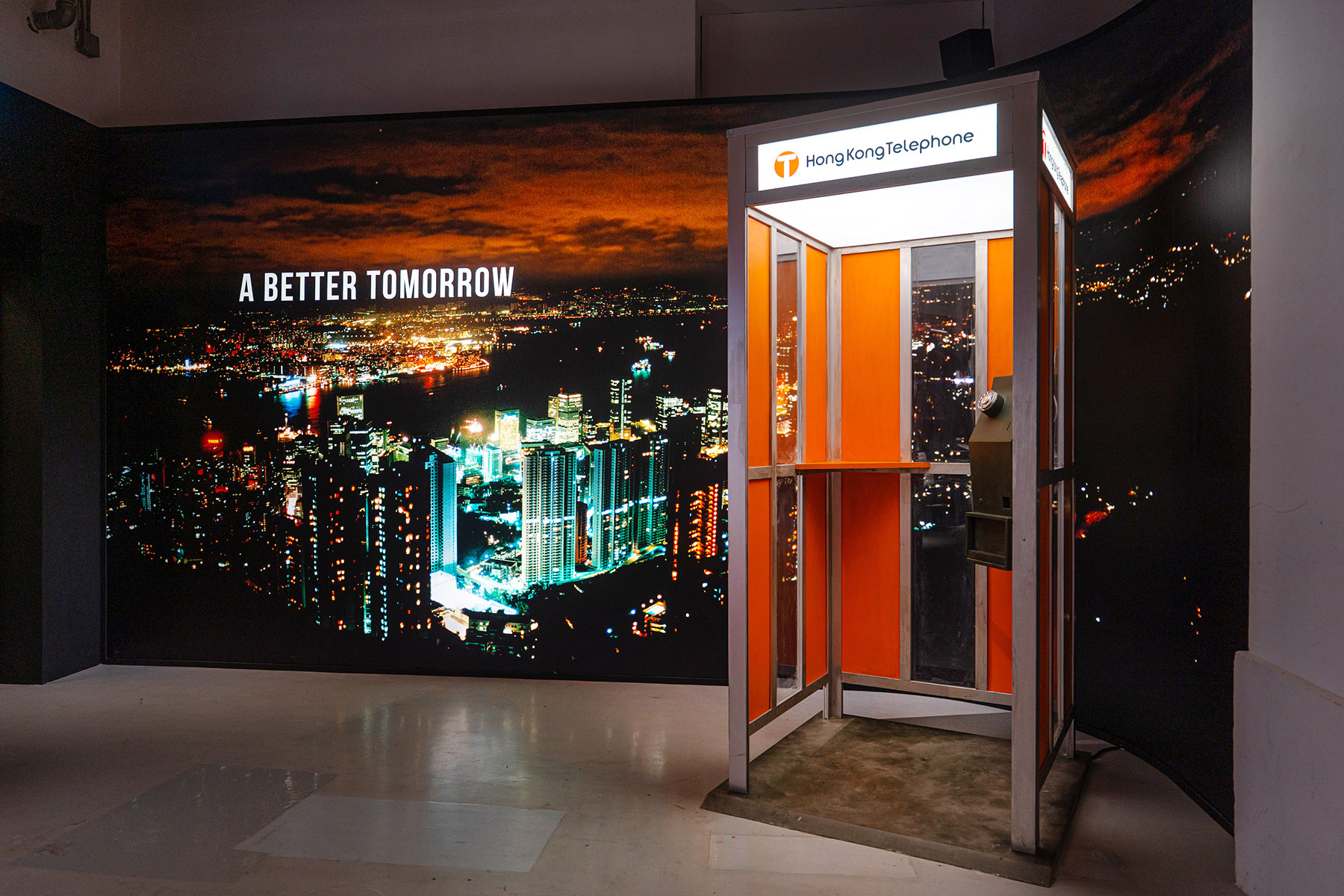
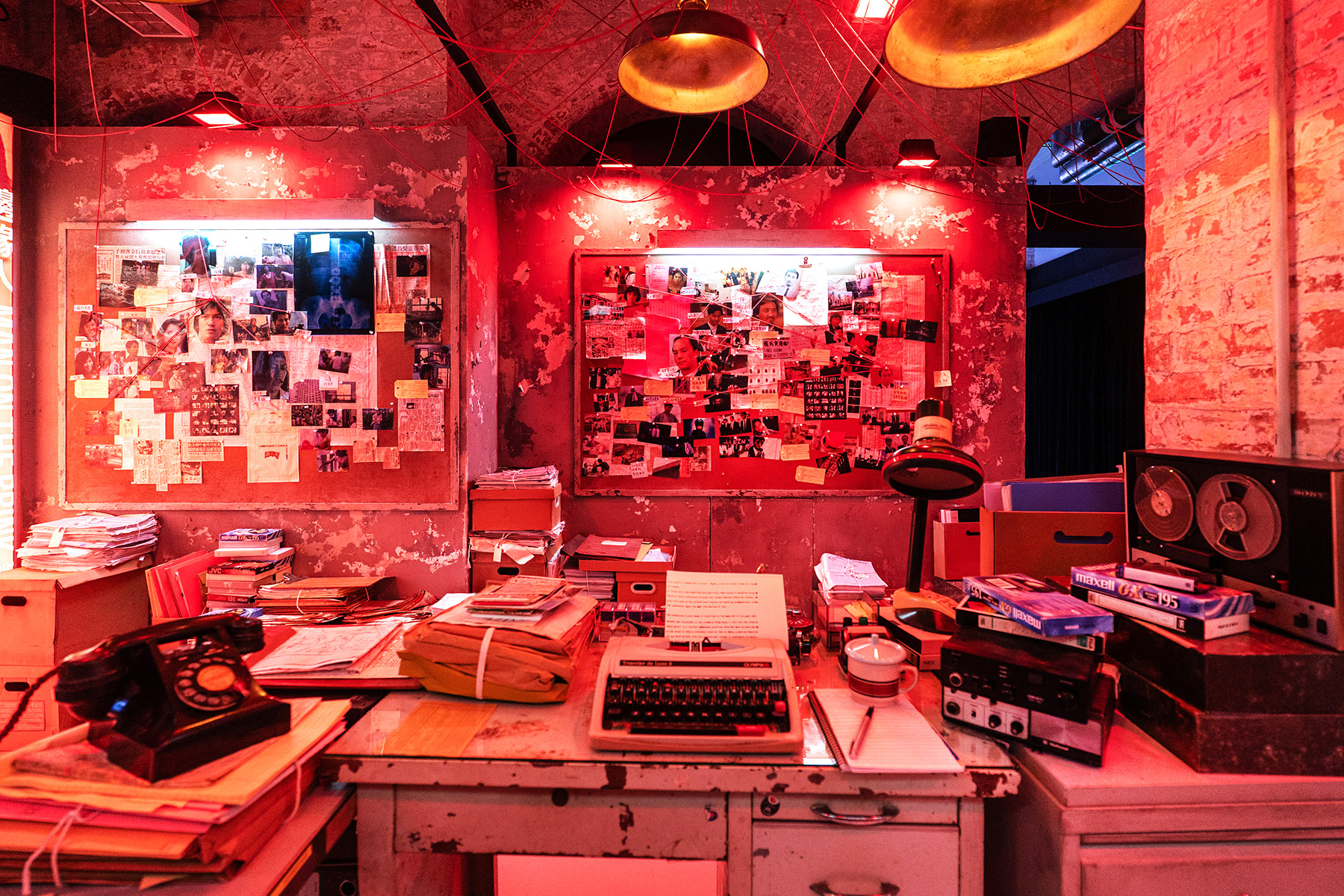
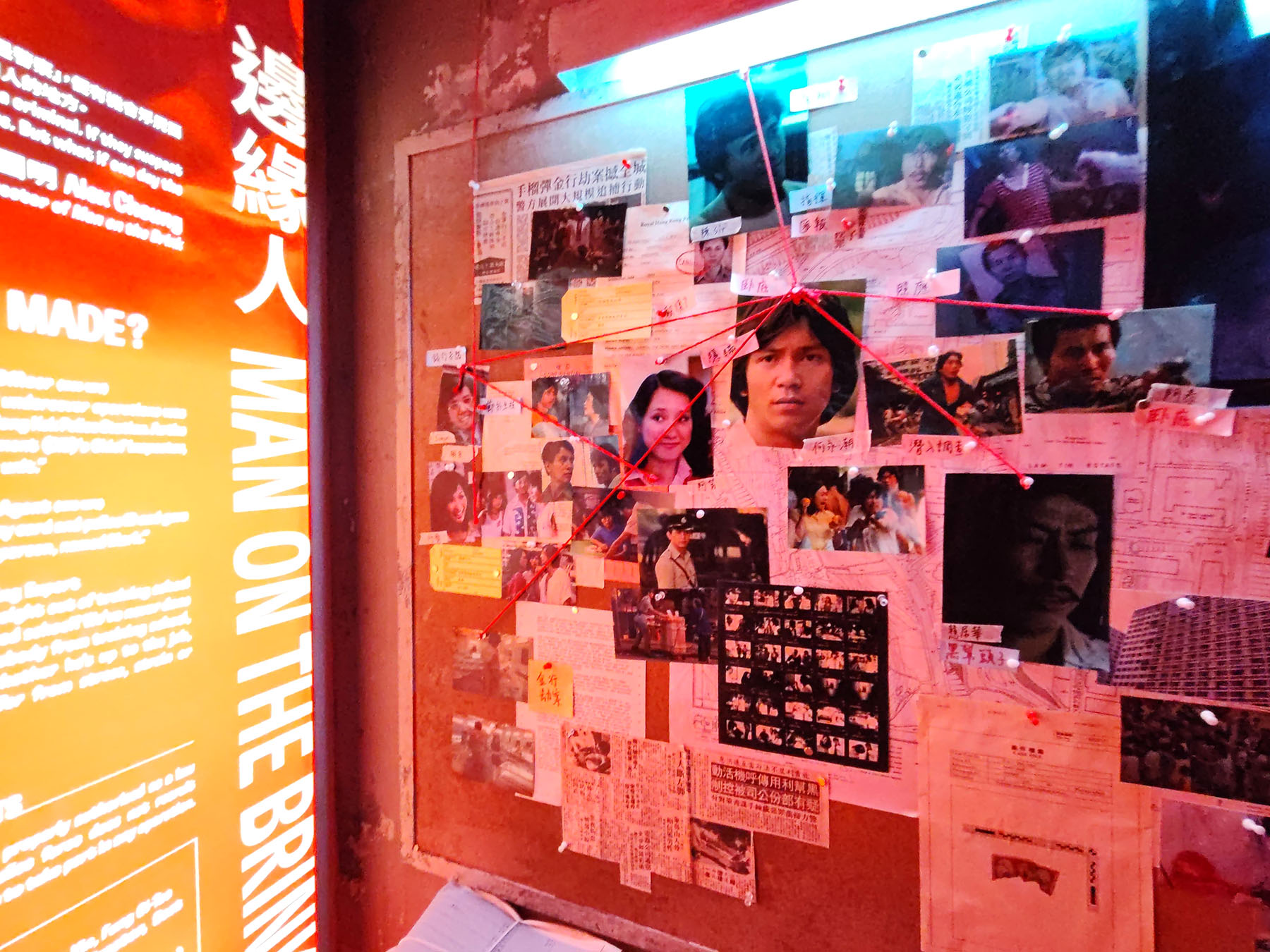
The arrival of the UC thriller also marked the beginning of a mature industry that was keen to wrestle with issues of morality and conflicting loyalties — themes that were to become a staple of Hong Kong cinema. Sunny Chan says the focus was on protagonists living “in the cracks between black and white, evil and justice, constantly waging a war on the side of humanity”.
All eight films in the show deal with the complexities of policing, justice and colonial politics, among other issues.
Van den Troost cites Protégé as an example of a film “that deals with the undercover theme in a different way, coupling it with questions about the drug trade and its consequences”.
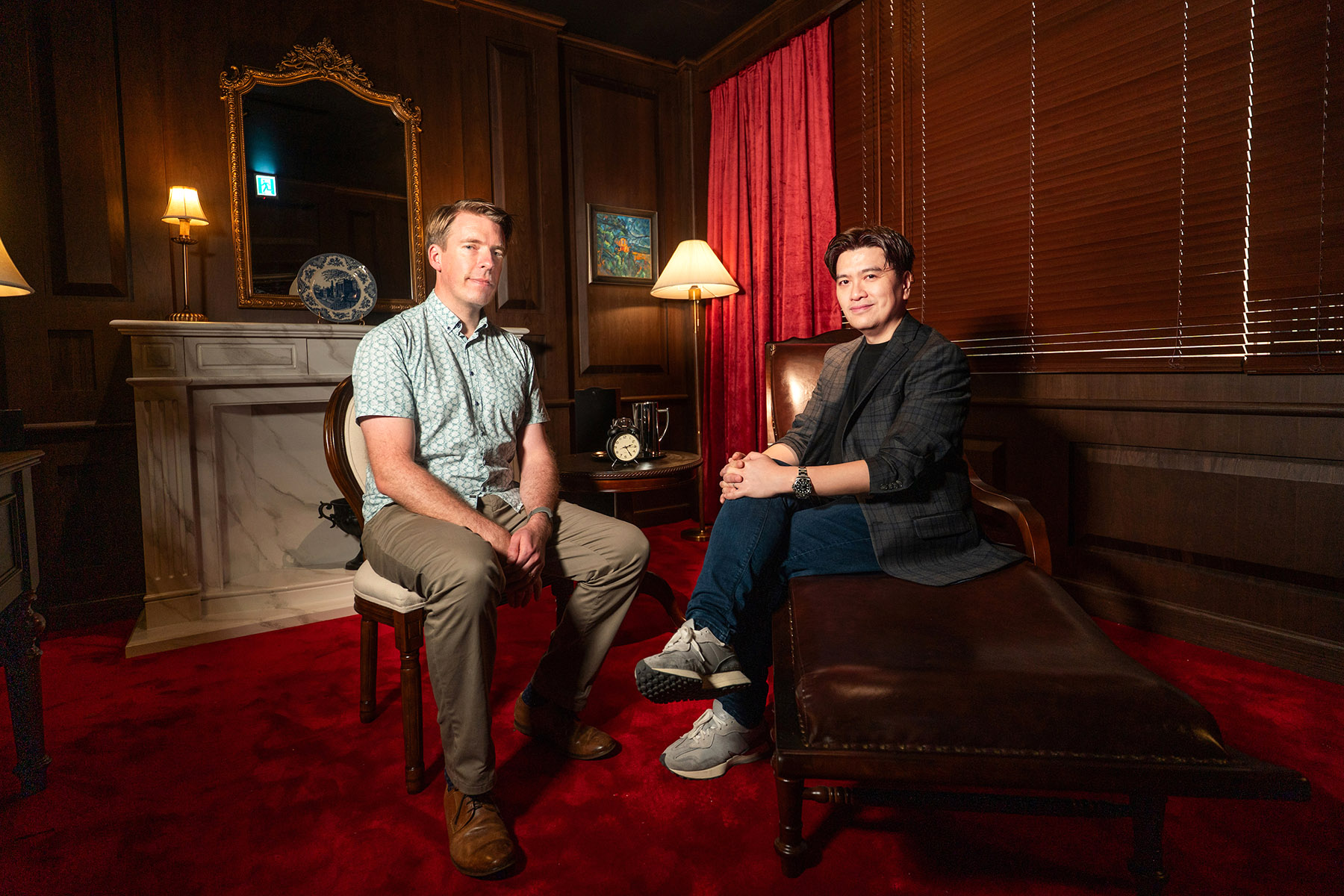
Seeking a new audience
Undercover Underworld offers an ideal entry point into the city’s cinematic heritage for an entire generation that was not yet born when Infernal Affairs was in theaters. The immersive exhibition takes visitors on a journey through different stages of life as an undercover agent. It’s an occasion to re-live classic film moments by walking through replicated sets, while listening to dialogues, director interviews, and contributions from real-life UCs.
The section called Mindmap introduces the plots of the eight films on the slate. Mission and Battlefield delineate the challenges of the job. Artist Alex Chan’s corridor-long mural, Life Journey, showcases some of the most recognizable actors from the subgenre.
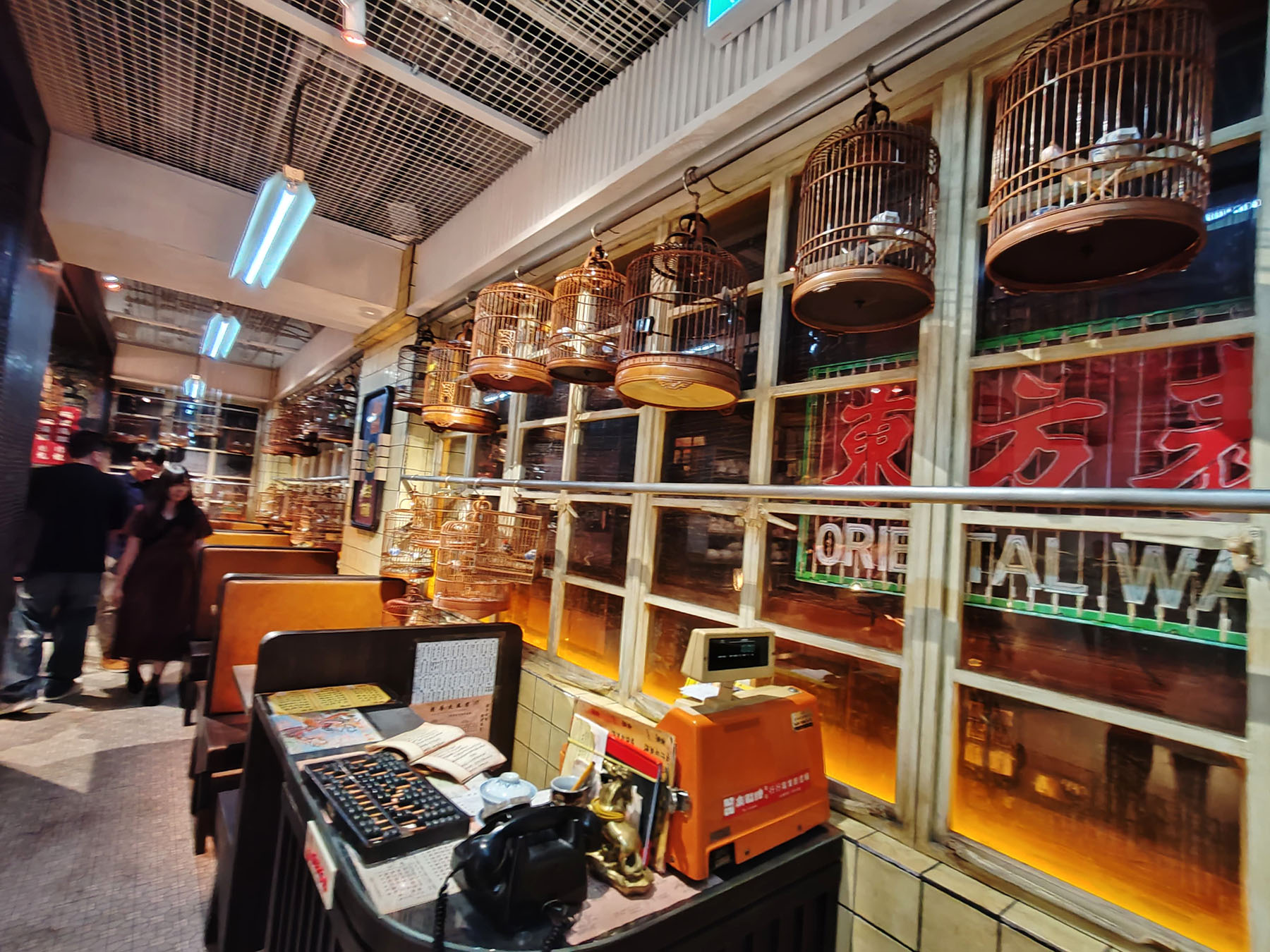
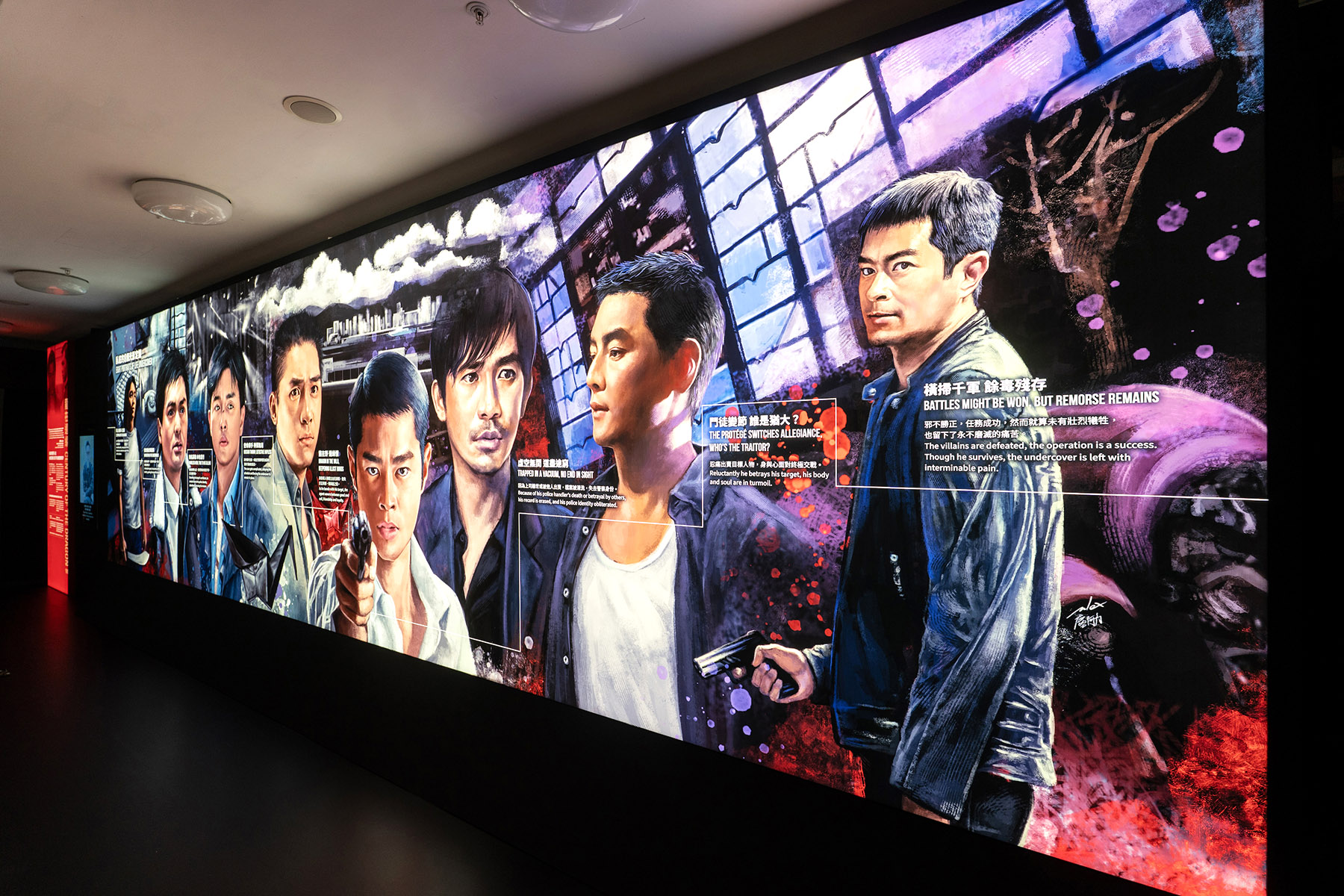
In October, Tai Kwun’s Laundry Steps will see free screenings of some of the films in the exhibition. It’s a chance to see the classics by Cheung, Woo and Lam as well as adjacent films such as Wong Jing’s comedy Truant Hero (1992), and My Father is a Hero (1995) by Corey Yuen Kwai, starring Jet Li as a Chinese mainland police officer tasked with infiltrating a Hong Kong terrorist cell.
Visitors are invited to step into a phone booth in order to re-live a gut-wrenching scene enacted by the late Hong Kong icon Leslie Cheung Kwok-wing in A Better Tomorrow II.
Sunny Chan is quick to point out how Leslie Cheung’s character, playing a UC, makes a call so that he can name his newborn child Sung Ho-yin (the righteous spirit), minutes before succumbing to his injuries. The act is a metaphor for affirming faith in the new generation.
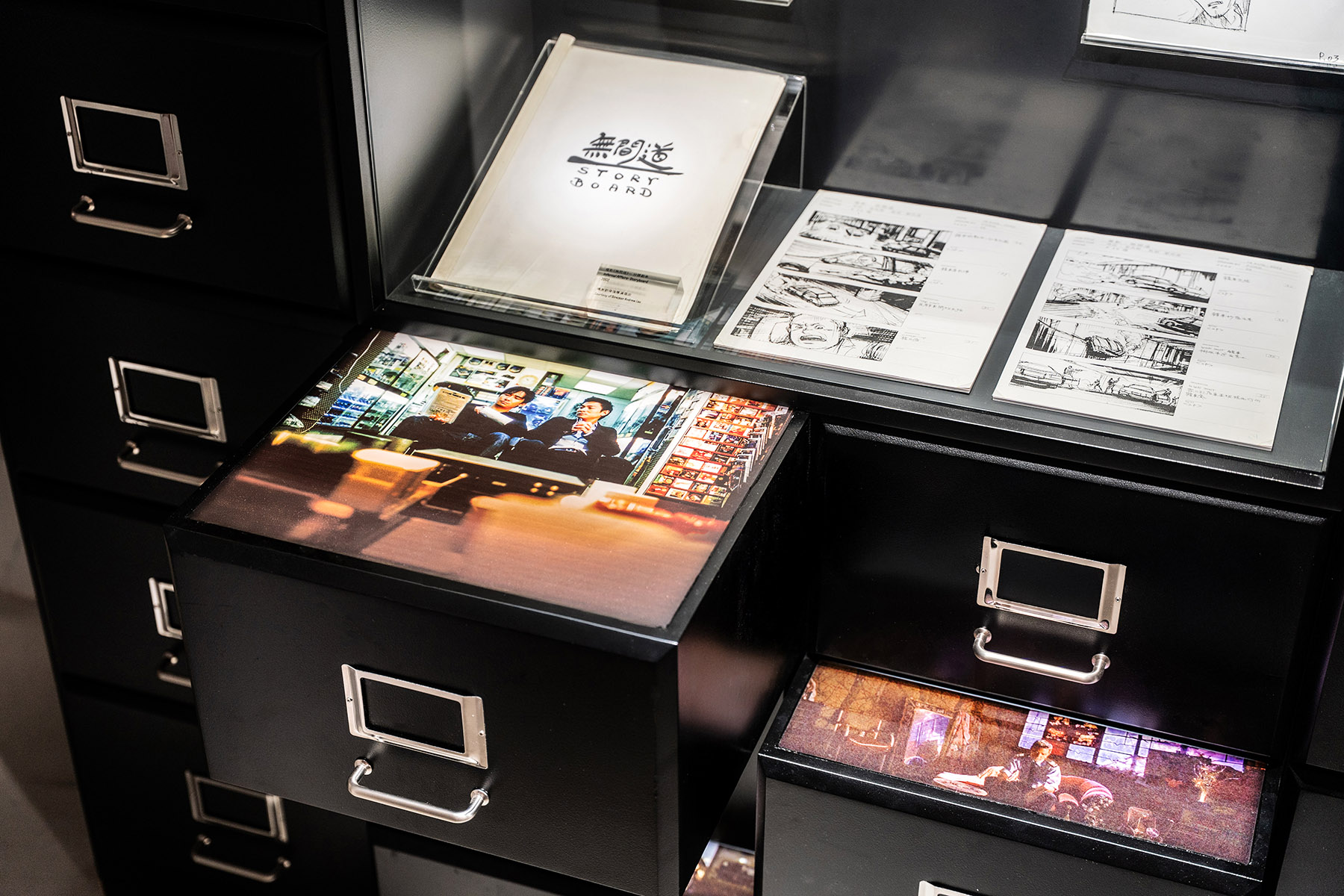
It’s also a metaphor for the exhibition, meant to serve as the curators’ message to Hong Kong people, particularly the younger lot, assuring them that the appeal of Hong Kong-made undercover cop thrillers is a sustained one.
ALSO READ: Flashback on fun times in HK cinema
“There’s still a sizable audience for these films,” says Van den Troost. “And I think these films are an important part of maintaining Hong Kong culture.”
If you go
Undercover Underworld
Dates: Through Oct 5
Venue: Duplex Studio LG1/F and LG2/F, Police Block Headquarters, Tai Kwun, 10 Hollywood Road, Central
www.taikwun.hk


